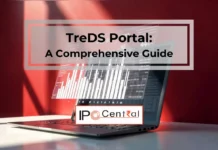What is an IPO?
This is one of the most common questions in IPO FAQs. IPO full form is Initial Public Offering. As the name suggests, an IPO is the first offering of shares to general public. Prior to an IPO, shares might be offered to a different set of investors such as angel investors, venture capital firms and private equity players. Thus, this is the first time a company approaches folks like us for money.
Why are IPOs conducted?
Companies need funds for their regular operations, expansion plans etc and IPOs allow them to raise loads of equity capital in a distributed manner. Unlike bank loans and other forms of debt, equity is interest free capital for companies.
Who can invest in IPOs?
Another common fixture in IPO FAQs. All Indian nationals who are competent to contract under the Indian Contract Act, 1872, in single or joint names. Ok, in simple terms it means that any citizen of the country, aged 18 years or more, with a sound mind is eligible to contract, provided he/she is not disqualified from contracting by any other law. What this means is that most people with no police or criminal investigations going against them are safe.
One needs a valid PAN (Permanent Account Number) and bank account can invest in IPOs. Parents of minors can also apply on the behalf of their kids under a guardianship account opened for the benefit of a minor. It is important to note that all applicants need to have demat account for applying to IPOs. Opening a demat account is now a completely online process and several companies waive off account opening charges. Investors can also take advantage of Basic Services Demat Account (BSDA) in case trading volumes are low.
What are the different types of IPOs?
Broadly, IPOs can be categorized in two types – Fixed price issue and Book-built issue
Fixed Price – As the name suggests, fixed price issues have prices fixed by the company. Therefore, price of offer is known beforehand.
Book-building – In book-building issues, the company offers a price range to investors and final price is discovered only after the bidding is over. The highest price where the company is able to sell all its shares is finalized as the offer price.
What are categories in which IPO allotment applications can be made?
IPO applications are broadly classified in these three categories:
Qualified Institutional Bidder (QIB) – As the name suggests, QIBs are qualified institutional buyers as defined by SEBI’s Issue of Capital and Disclosure Requirements (ICDR) regulations. Generally, 50% of the offer is reserved for QIBs.
Typical examples are foreign portfolio investors (FPIs) (other than Category III FPIs), scheduled commercial banks, mutual funds registered with the SEBI, venture capital funds registered with SEBI, foreign venture capital investors (FVCIs), alternative investment funds (AIFs), multilateral and bilateral development financial institutions, state industrial development corporations, insurance companies registered with the Insurance Regulatory and Development Authority (IRDA), provident funds with a minimum corpus of INR250 million, pension funds with a minimum corpus of INR250 million.
Non-Institutional Investor (NII) – This category is a mix of institutional and individual buyers. Generally, 15% of the offer is reserved for this category. Bids in the category need to exceed INR200,000. Typical examples include Category III FPIs, resident Indian individuals, HUFs (in the name of Karta), companies, corporate bodies, eligible NRIs, scientific institutions, societies and trusts.
Retail Individual Investor (RII) – This category is purely meant for small investors, whose bid should not exceed INR200,000 per person. Usually, 35% of the offer is reserved for this category, although it can also be less in case of loss-making companies. Resident Indian individuals, HUFs (in the name of the Karta) and eligible NRIs not falling in the NII category can apply under the RII category. The biggest differentiating factor between NII and RII is the size of application.
IPO FAQs – Who are anchor investors?
Anchor investors are qualified institutional bidders (QIBs) who are roped in a day ahead of the IPO opening date. Anchor investors are allocated shares up to 60% of the QIB category. One-third of the Anchor Investor Portion is reserved for domestic mutual funds.
What is ASBA (Application Supported by Blocked Amount)?
This is an application mechanism which completely eliminates the need for refunds in the case of partial allotment and no allotment. ASBA allows the investors money to remain with the bank till the shares are allotted after the IPO. The funds are transferred after the allotment and to the extent of allotted shares. Initially, QIBs were not allowed to participate in IPOs through ASBA facility; however, with effect from May 2010, investors in all categories can apply through ASBA.
It is important to note that all banks do not offer this facility. A list of Self Certified Syndicate Banks (SCSBs), which is updated regularly, can be found on SEBI website. As on April 2022, there are 60 banks registered with SEBI to act as SCSBs.
To get more details about this feature and how you can benefit from it, visit our Online ASBA FAQ page.
What is meant by Kostak and GMP?
Before an issue lists, trading activity may start in the informal market and both these terms are important benchmarks in the grey market. In grey market trades, shares allotted to IPO applications are sold by brokers without actually transferring the securities to their own accounts. The market is typically driven by high net-worth individual (HNI) investors who direct brokers to purchase applications from investors at a price which is called Kostak. IPO investors who sell their applications at kostak rates are not bothered about the allotment as kostak is not dependent on successful allotment.
GMP stands for Grey Market Premium and it indicates the premium per share on which IPO trades happen in the informal market. IPO GMP is the amount per share which an investor gets from the broker or individual who buy them before listing of the shares which might get allotted in the application.
To get issue-specific IPO grey market and kostak rates, please check out our IPO grey market and discussion section. The idea behind this page is to get most IPO FAQs answered but if you have more questions, feel free to ask in comments and we will do our best to answer the same as soon as possible. In fact, we will be happy to include such questions in this page on IPO FAQs.
IPO FAQs – Can I make more than one IPO applications?
The way IPOs have made money for investors in recent years, it is not surprising to see this question in IPO FAQs. And the answer is one can only make a single application in an IPO in his/her name. More than one applications from a single bank account are possible as long as applications are filed under different PANs. If more than one applications are detected under a PAN in an IPO, all applications are liable to be rejected.






































GOOD!
Can I submit more than one application through ASBA? Like the 2 lakh limit , can split into two application, each for one lakh?
Not under the same PAN, both applications will stand cancelled. You can ofcourse put separate applications through the same bank account for different PANs.
Whats the best practice for how to apply for an ipo to maximize the probability of allotment.
Reliance Nippon ipo what is your advice loss or profit earning
Mr. Bagra,
If I apply for an IPO with > 2Laksh limit, I automatically become an NII investor. Is it true that SEBI IPO rules deny NII’s from revising their bids downwards or cancelling them even though within the IPO window? And apparently, the bid can only be revised upwards, but not downwards/cancelled!
If the above true, is there a reason for SEBI to introduce the rule? I mean what is the point of having an IPO window, if an investor cannot revise his bid downwards/cancel his application should he change his mind? Please clarify.
sir
can we apply ipo from esaf small finance bank
Can I publish your resources on my website.
I will be mentioning your website for further details.